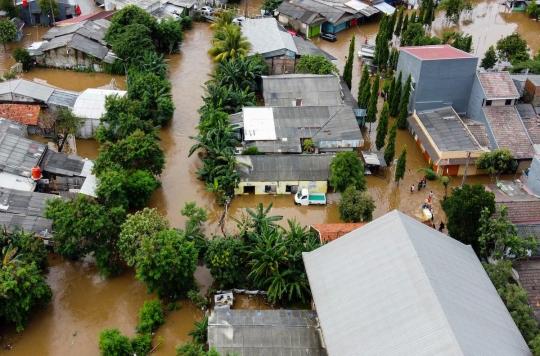Repeated exposure to disasters, whether natural or industrial in origin, is associated with lower scores on mental health tests.

- Asia is the continent most affected by natural disasters.
- Many studies have focused on the immediate effects of disasters on mental health, this one is devoted to the long-term effects of the repetition of these events.
The number of natural disasters has doubled in 20 years, according to a United Nations report. Global warming is the main cause of this increase. In some regions, these events are particularly frequent. For the people who suffer them, this has immediate psychological consequences, but not only. In a study published in Natural HazardsUS researchers show that repeated exposure to disasters, natural or industrial, degrades mental health on the long term.
An area frequently affected by disasters
Scientists at the Texas A&M University School of Public Health used a 12-point health questionnaire to do this work. They submitted them to people who live near Houston in the United States, as this area has been frequently affected by hurricanes, floods and industrial disasters. From 2000 to 2020, Texas, the region where this city is located, has experienced 33 major disasters declared by the Federal Emergency Management Agency (FEMA). Many of these, including hurricanes, droughts and floods, affected Houston and surrounding areas, but several explosions and chemical releases also occurred at nearby industrial facilities. “It’s a sad truth, but many communities that reside along the Gulf Coast of Mexico are at the crossroads of exposures to natural, or man-made hazards.“, comments Garett Sansom, one of the main authors of this research.
Hurricanes and floods, the most frequent disasters
In their investigation, the researcher and his team assessed the impact of these disasters using two scales of scores already used: one for mental health and the second for physical health. The majority of participants said they had experienced many dangerous events over the past five years. Hurricanes and floods were the most frequent events, 96.35% of respondents experienced them, followed by industrial fires, chemical spills and tornadoes. The researchers noted that when individuals experienced two or more events in the past five years, their average mental health score fell below expected national levels. The higher the number of disasters experienced, the more mental health deteriorates.
Protect those at risk
“Mental health is often overlooked in responding to and preparing for exposure to these dangers“, observes Garett Sansom. For the researcher and his team, it is necessary to put in place public policies for these people, residing in areas at risk. For him, this is a non-negligible element of “resilience effort“. If it is customary to say “What does not kill you makes you stronger”the results of this study prove the opposite.
.















